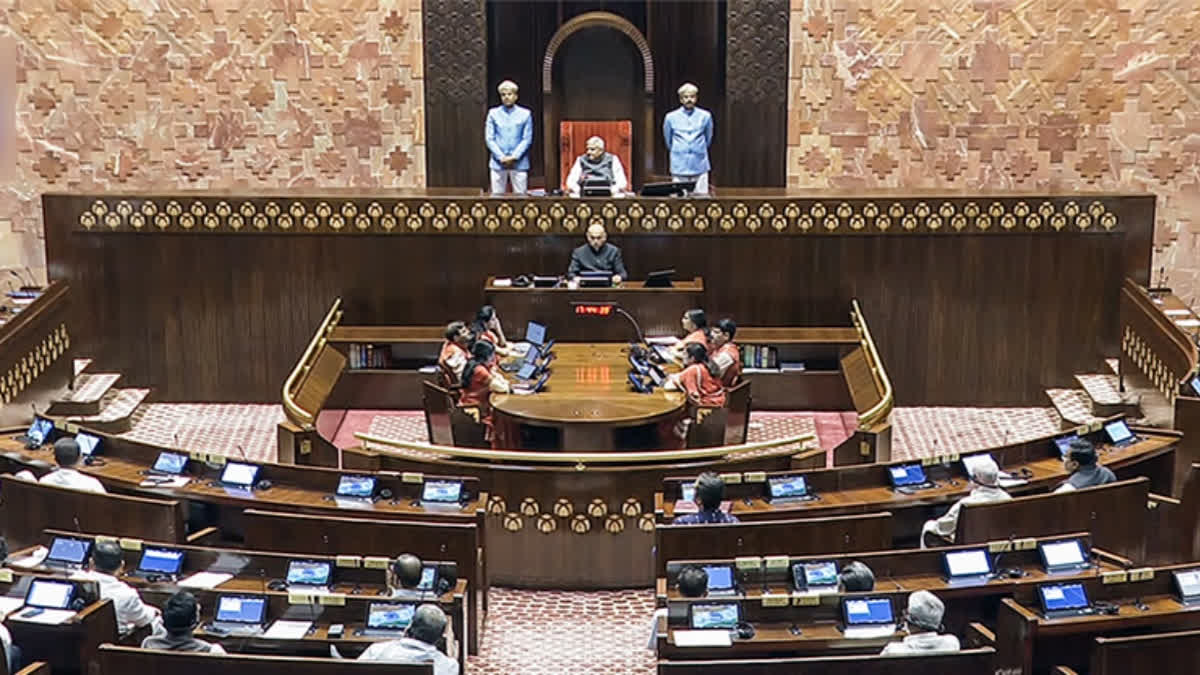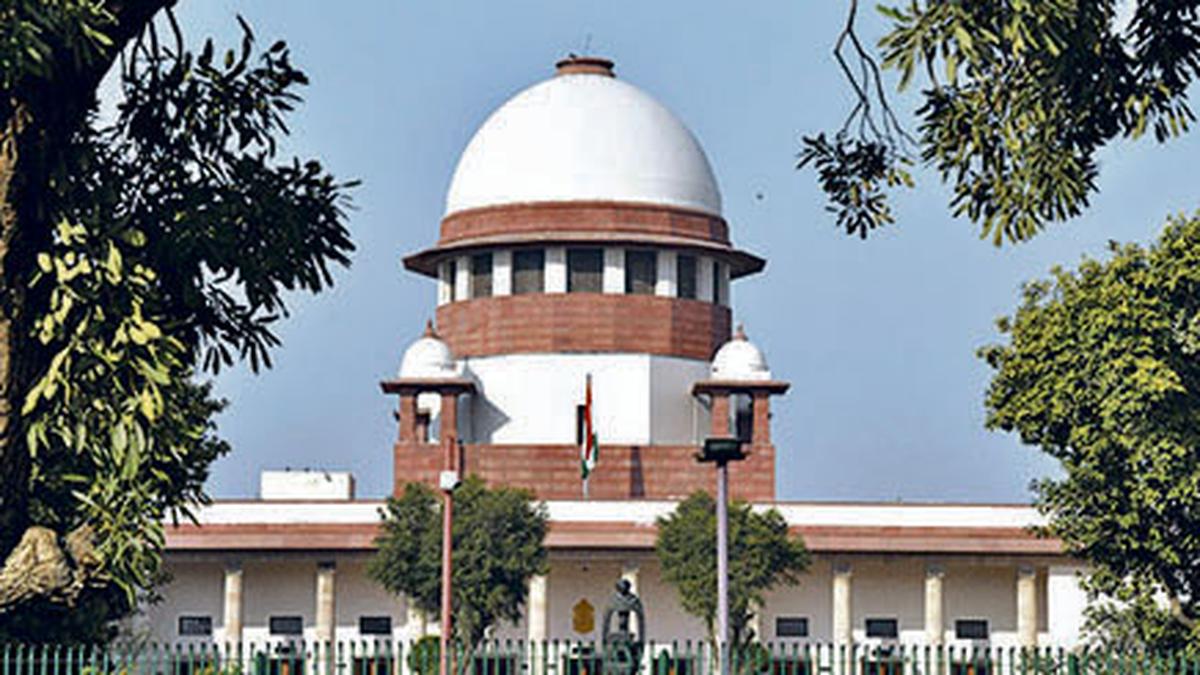
A joint parliamentary committee reviewed the Waqf (Amendment) Bill, 2024 in August of 2024 before the Lok Sabha will consider it on the day of April 2nd, 2025. The proposed Waqf (Amendment) Bill 2024 faces expected opposition but ministers from the BJP party plan to discuss it with India Bloc representatives before parliamentary submission. The bill targeting Waqf property management and governance in India was arranged to lack parliamentary approval when the Budget session ends on April 4, 2025. The enactment of this bill depends on the assent of both Lok Sabha and Rajya Sabha.
Context:
-
The Waqf Bill destined for the joint parliamentary committee in August 2024 is set to be introduced to the Lok Sabha on April 2.
-
The Indian Parliamentary session will begin with Senior BJP ministers leading talks to India Bloc leaders about the bill before its presentation, according to sources.
-
The Budget session running in Parliament has an April 4th end date. Two parliamentary bodies need to approve this bill through the Lok Sabha and the Rajya Sabha to implement it.
Overview of the Waqf (Amendment) Bill, 2024:
Background:
-
The concept of Waqf (endowment) was introduced in India with the advent of Muslim rule.
-
During the Mughal and Sultanate periods, Waqf management was centralised and theocratic in nature.
-
Waqf was also closely linked to conversion and cultural appropriation in pre-British India.
Legislative Context:
-
Under the Waqf Act, 1954 and Waqf Act, 1995 authorities sought to take charge of Waqf property administration despite facing problems with management difficulties and property disputes.
-
The Waqf (Amendment) Bill of 2024 exists to resolve persisting Waqf governance issues and improve Waqf administration efficiency.
Key Amendments in the Bill:
-
Renaming the act: This bill changes the Waqf Act, 1995 name to "Unified Waqf Management, Empowerment, Efficiency, and Development Act, 1995" to stress governance and development elements.
-
Formation of Waqf: The current rules for creating Waqf have become more stringent while the "waqf by user" practice has been eliminated and waqf-alal-aulad specifications have been redefined to protect inheritance rights.
-
Government Property as Waqf: Under this amendment the ability of Waqf boards to claim government properties through Waqf is restricted to achieve definite property ownership decisions.
-
Waqf Boards and Tribunals: shifted their leadership structure by adding diverse members who include non-Muslims and women to their boards.
-
Appeals Process: The Appeals Process allows people to file complaints against Waqf Tribunal rulings thus establishing judicial examination for increased responsibility.
Concerns and Criticisms:
-
The question of constitutional validity joins forces with religious considerations because of the orientation toward specific religious Waqf properties.
-
The concentrated system of power can produce delays which would diminish the management freedom of local communities.
-
The process of altering property ownership and appeals functions as a catalyst for increased legal disputes that extend to longstanding property disputes.
-
The unclear enforcement procedures create challenges during implementation that result in weak results.
Stakeholder Impact:
-
The adjustments to Waqf Institutions would increase oversight and administrative practices yet potentially diminish Waqf Board's management power of newly purchased properties.
-
Non-Muslim communities benefit from Waqf board membership yet they harbor doubts regarding religious self-governance.
-
Government institutions including central authorities may advance accountability responsibilities throughout audits and law enforcement operations while judiciary bodies will process appeals between cases which enhances their legal workload.
Socio-Political and Legal Implications:
-
The proposed Bill aims to fix land conflicts and improper Waqf property management even though this could result in religious disputes and political conflicts.
-
The government's elevated oversight role in judicial functions will potentially trigger national discussions about India's federal system of governance.
The Road Ahead:
-
The Waqf (Amendment) Bill, 2024 makes substantial system improvements for Waqf property management while increasing focus on accountability as well as effective administration.
-
Success hinges on the political environment, legal challenges, and efficient enforcement of new provisions.
-
Keeping the bill under continuous review and re formatting its provisions will likely produce the desired outcomes.
Conclusion
The Waqf (Amendment) Bill, 2024 currently stands at an essential juncture since its anticipated appearance before the Lok Sabha members. Political leaders continue discussions that will determine the fate of this bill despite receiving opposition from stakeholders. Once both Indian parliament houses pass it the Waqf (Amendment) Bill 2024 will introduce a fundamental change in Waqf property governance in India for increased efficiency, enhanced transparency and improved accountability measures. The bill needs further political discussion and legal clarification before it can successfully transition through the Lok Sabha.



 Bodh Gaya Temple Act (BTA), 1949: Historical and Legal Perspectives
Bodh Gaya Temple Act (BTA), 1949: Historical and Legal Perspectives Tribhuvan Sahkari University Bill, 2025: A Milestone in Strengthening India's Cooperative Sector
Tribhuvan Sahkari University Bill, 2025: A Milestone in Strengthening India's Cooperative Sector ‘Shishtachar’ Squads Launched in Delhi to Ensure Women’s Safety
‘Shishtachar’ Squads Launched in Delhi to Ensure Women’s Safety PM Pays Tributes to Shyamji Krishna Verma on His Death Anniversary
PM Pays Tributes to Shyamji Krishna Verma on His Death Anniversary PM Modi to Inaugurate Vande Bharat Train to Srinagar on April 19
PM Modi to Inaugurate Vande Bharat Train to Srinagar on April 19 Free Speech as an Integral Part of a Healthy and Civilised Society
Free Speech as an Integral Part of a Healthy and Civilised Society Roshni Nadar Becomes First Indian Woman in World’s Top 10 Richest Women
Roshni Nadar Becomes First Indian Woman in World’s Top 10 Richest Women Commemorative Postage Stamp Issued in Honor of Mata Karma from Raipur
Commemorative Postage Stamp Issued in Honor of Mata Karma from Raipur Supreme Court Stays Allahabad HC’s ‘Inhuman’ Rape Attempt Remarks
Supreme Court Stays Allahabad HC’s ‘Inhuman’ Rape Attempt Remarks






